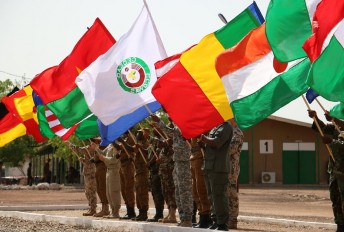PS Quarterly regularly features predictions from leading thinkers and uniquely positioned commentators on a topic of global concern. In this issue of PS Quarterly, Project Syndicate commentators offered their insights in response to the following proposition:
“The coming year will confirm that the world is quickly moving toward greater multipolarity or “non-alignment.”
In the coming year, we will see not greater multipolarity, but greater bipolarity. China has replaced Russia as America’s main competitor in a new cold war that is less about ideology and more about markets and technology. The $18 trillion Chinese economy has already overtaken that of all 27 European Union countries combined, and China is the largest trading partner to more than 120 countries. Its Belt and Road Initiative continues to build infrastructure around the world, and the Beijing-based Asian Infrastructure Investment Bank (with a $100 billion capitalization) has 109 members representing 80% of the world’s population. In January, the China-dominated BRICS (Brazil, Russia, India, China, and South Africa) will expand to include Argentina, Ethiopia, Egypt, Iran, Saudi Arabia, and the United Arab Emirates.
Many of these countries from the Global South have refused to condemn Russia’s invasion of Ukraine. Now, they are seeking to bolster the 120-strong Non-Aligned Movement, which emerged from the 1955 Bandung Conference of Asian and African governments. As part of a strategy to avoid becoming embroiled in superpower conflicts (between the Americans and the Soviets, at the time), NAM members abstained from collective defense arrangements with either side. This weapon of the weak lent momentum to efforts to enhance regional autonomy and strengthen global-governance institutions like the United Nations, and it may yet do so again.
Finally, as of this writing, Israel’s siege and bombardment of Gaza in response to Hamas’s attack (which killed 1,400 Israelis) has resulted in more than 9,000 dead and 1.4 million displaced Palestinians. Unquestioning Western support for Israel will expose the double standards at the heart of the international system, further weakening global support for Ukraine in 2024.
The full article includes contributions from Ian Bremmer, Stephen G. Brooks, Paula J. Dobriansky, Jorge Heine, Ana Palacio, Yu Jie, and Stuart Whatley. The article was orignally published by Project Syndicate on 11 December 2023.
Professor Adekeye Adebajo is a professor and senior research fellow at the Centre for the Advancement of Scholarship, University of Pretoria.
Disclaimer: The opinions expressed in this article are solely those of the author and do not necessarily reflect the views of the University of Pretoria.









 Virtual Campus
Virtual Campus
Get Social With Us
Download the UP Mobile App